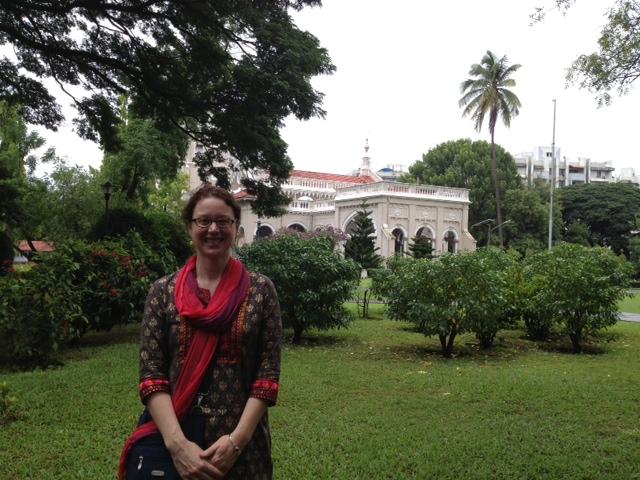Washburn Law professor serves as Scholar-in-Residence in India
September 25, 2013
Washburn University not only understands the importance of study abroad programs for students but also encourages opportunities for faculty to play a role in helping Washburn build international partnerships.
Washburn Law Professor Tonya Kowalski provides one example of the dedication and excellence Washburn shares at home and abroad.
Kowalski spent this summer as a visiting International Scholar in Residence at one of the top ranked private schools in India; Symbiosis Law School, Symbiosis International University.
The main campus of Symbiosis is located in Pune, Maharashtra; which is one of India’s most populous cities. Pune is renowned as a city of colleges and often referred to as the ‘Oxford’ of India.
When Symbiosis Law school dean, Dr. Sashikala Gurpur, initially stated an interest to partner with a law school with a really strong reputation for skills education, Washburn Law seemed a likely choice; especially with its strong reputation in legal writing skills.
Washburn Law has been ranked 11th among all law schools for its Legal Analysis, Research and Writing Program in the U.S. News and World Reports 2014 Best Graduate Schools ranking.
Kowalski’s initial visit, with two other faculty members, was in March 2012 and resulted in an invitation to guest teach. With a passion for indigenous culture and legal writing expertise, Kowalski agreed and returned this summer to teach from July 17 to August 20.
Kowalski taught Symbiosis law students Introductory Legal Analysis Skills and Oral Argument Skills. She also presented latest teaching methods for legal writing in the United States, strategies for scholarly productivity and the latest research on international indigenous people, ‘Nation to Nation: The Essence of ‘Government-to-Government’ Relations in Tribal-Federal Consultations.’
“They were very hospitable,” Kowalski said. “The culture is definitely different but something I already had an affinity for. It was exciting and I got to try a lot of new things.”
Much of her time in India was spent teaching, but Kowalski was able to try many different foods and was taken around the city for tours of cultural sites, temples and museums. She found the visit to Aga Kahn Palace where Gandhi was imprisoned especially ‘powerful.’
Kowalski was not required to wear the native clothing, yet opted to do so.
“I didn’t want my appearance to be a distraction outside or inside the classroom,” Kowalski said.
In addition, this clothing, designed for the climate, was much more comfortable. Because Kowalski’s visit was during monsoon season, she daily wore plastic sandals and Salwar Kameez, a commonly worn set of loose, decorative yet functional, cotton trousers with cuffs at the ankles to prevent dragging in the mud.
Kowalski will be returning to teach in the future. Symbiosis has expressed interest in other faculty visiting as well. Washburn already has plans to send its first group of undergraduate students to Symbiosis in the near future.
“It’s not just the law school that is partnering with Symbiosis. It’s growing across the board which is really neat,” Kowalski said.
Symbiosis in Greek means ‘living together for the mutual benefit of each other,’ and Kowalski understands the value of her visit for both universities.
“One of the best parts about that experience was building relationships with the faculty and administration there,” Kowalski said, “and it looks very positive that the relationship with the law school will continue in the future.”
*At Washburn Law Professor Kowalski teaches Legal Analysis, Research, and Writing, Legal Writing for Clerkships and Externships, Tribal Law and Government and International Law of Indigenous Peoples.
For more information about Symbiosis Law school:
http://siu.edu.in/academics/SLS.php
For student international study opportunities please contact:
www.washburn.edu/academics/international-programs/study-abroad/



